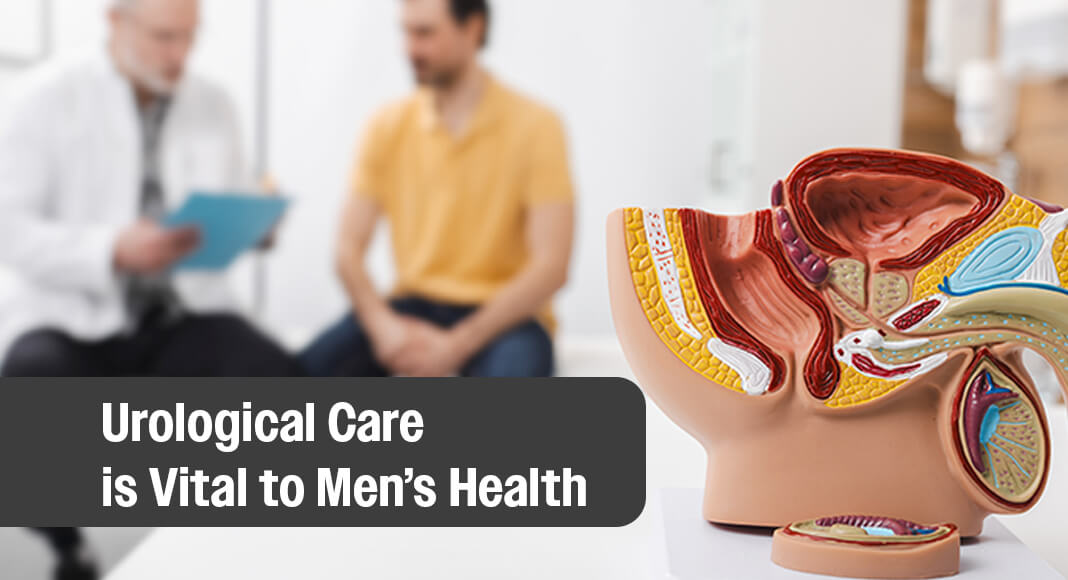
Mega Doctor News
South Texas Health System
Men’s Health Month may be over, but keeping your good health at the forefront should be a year-round goal. One area that doesn’t typically get the spotlight? Urological health.
“From the prevention of infections to the early detection of conditions, overall well-being and quality of life is dependent on the functionality of the urological system, including the kidneys, ureters, bladder and urethra,” says board-certified urology specialist Phillip Kim, MD.
Dr. Kim, recently welcomed to the medical staff of South Texas Health System®, provides comprehensive treatment for the urinary system and male reproductive organs. “I’m hoping to help the community better understand common conditions and the importance of early detection and seeking appropriate medical care.”
Urological conditions and symptoms
Urological conditions—like erectile dysfunction, urinary tract infections, kidney stones and prostate cancer—are common issues for men, especially as they age.
For example, erectile dysfunction may affect up to 50 million U.S. men, while 11% to 34% of men report urinary incontinence.* Although these conditions are common, that doesn’t give men the green light to ignore symptoms.
These symptoms can be indicators of underlying health conditions that need immediate attention. For example, did you know that erectile dysfunction may be related to heart disease? Meanwhile, urinary incontinence may signal the presence of prostate cancer or diabetes.*
Other symptoms of a potential urological health problem include difficulty or painful urination, frequent urination, hematuria (blood in the urine) and weak or slow urine stream.
Stay healthy down there: Tips to help men improve urological health
Focus on hydration. Drink plenty of water, and limit alcohol and caffeine intake.
Maintain good urinary habits. Don’t put off going when the need arises, and empty your bladder completely every time you visit the bathroom.
Quit smoking. Abstaining from smoking is key to overall good health. When it comes to urological health, smoking is linked to bladder cancer.*
Prioritize nutrition. Another piece of advice that applies to just about every aspect of health, good nutrition is fundamental to urological health. Fill your plate with vegetables, fruits, whole grains and healthy proteins (e.g., lean meats, poultry, fish, beans).
Go to the doctor. Schedule a visit not only if symptoms arise, but also proactively to ensure you’re keeping up with important health tests and screenings.
South Texas Health System has men’s health covered
Dr. Kim is seeing patients at his practice, Rhize Urology, located in the Medial Office Building next door to STHS Edinburg.
Additionally, at South Texas Health System Edinburg, you can find treatment for disorders of the urinary and reproductive systems, with special emphasis on the treatment of prostate cancer, bladder cancer, benign prostatic hyperplasia and incontinence.
Information source: STHS












